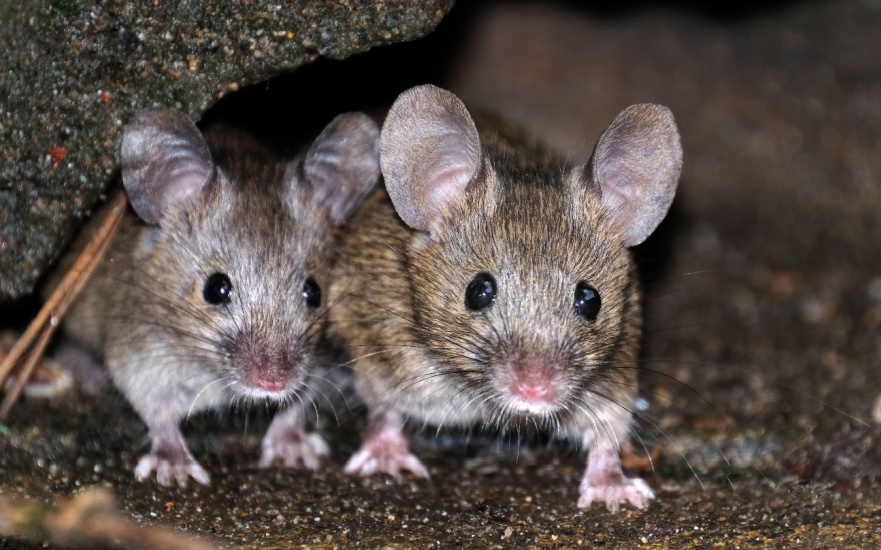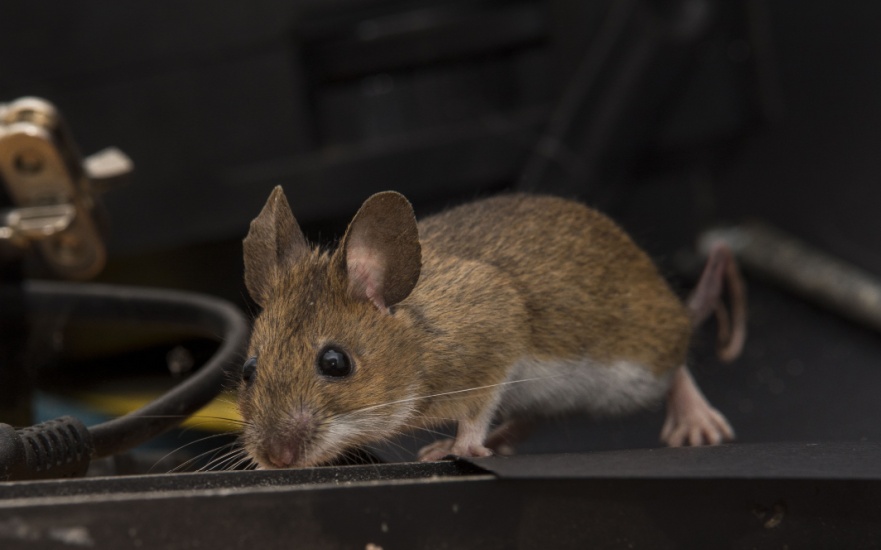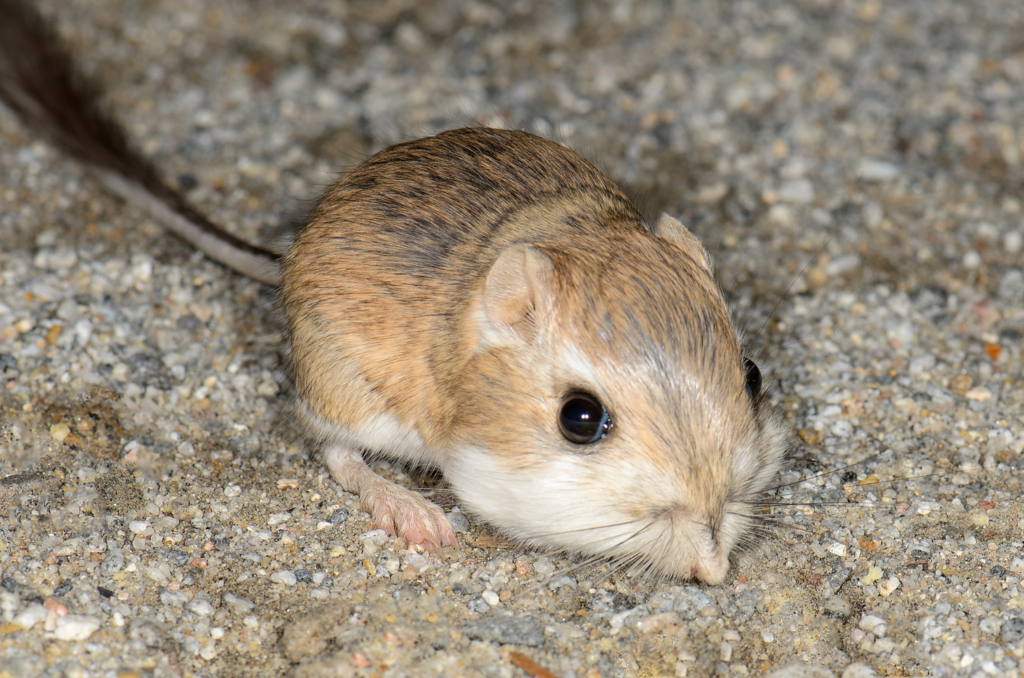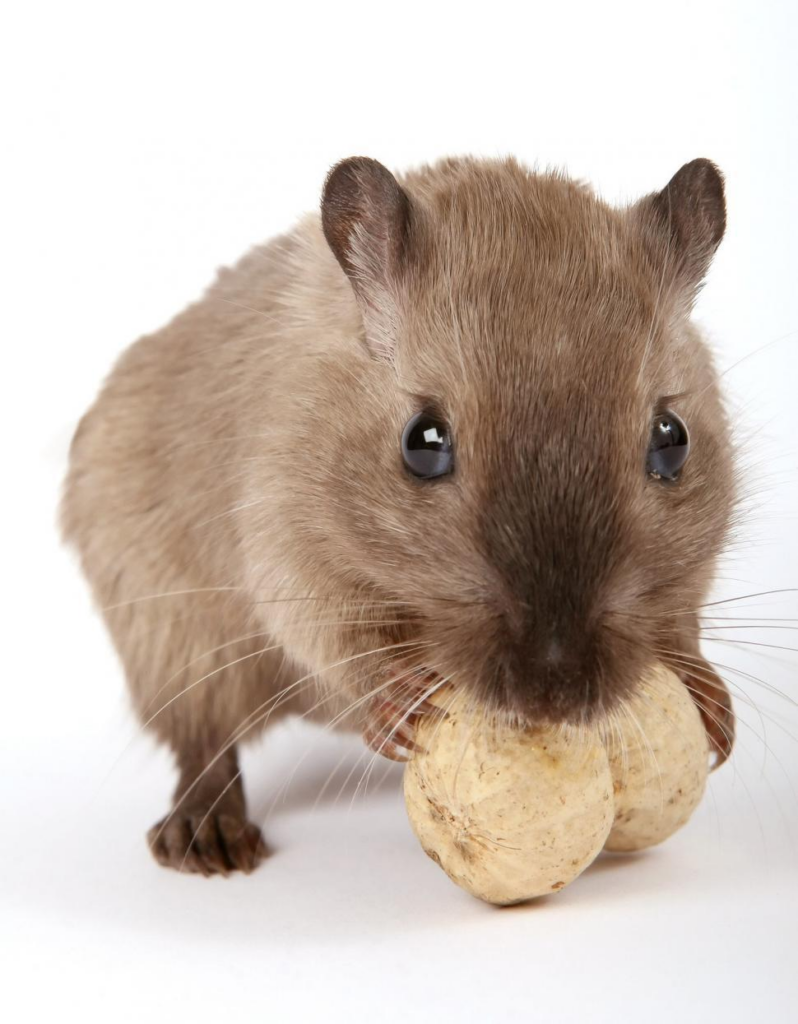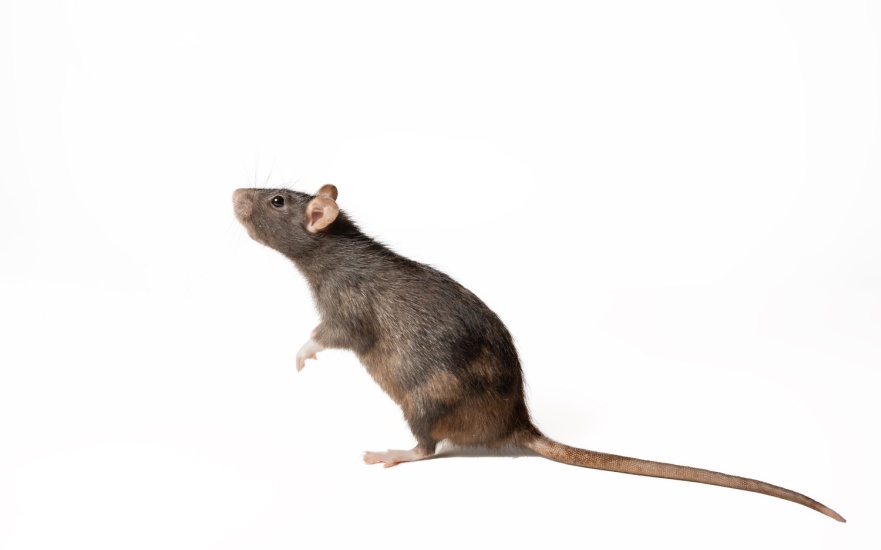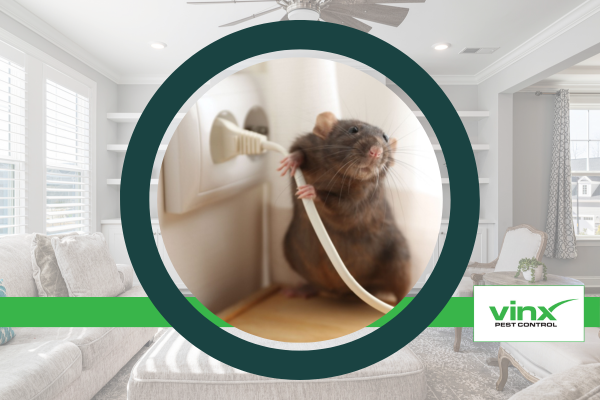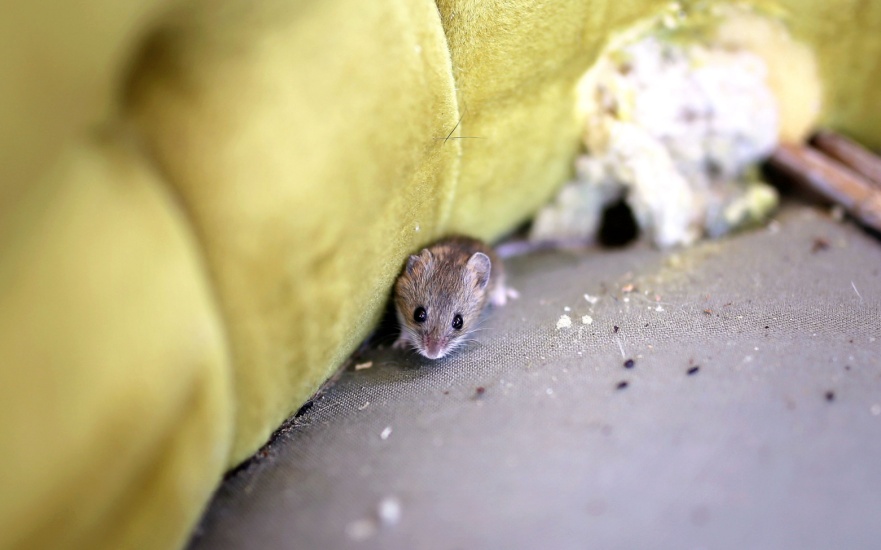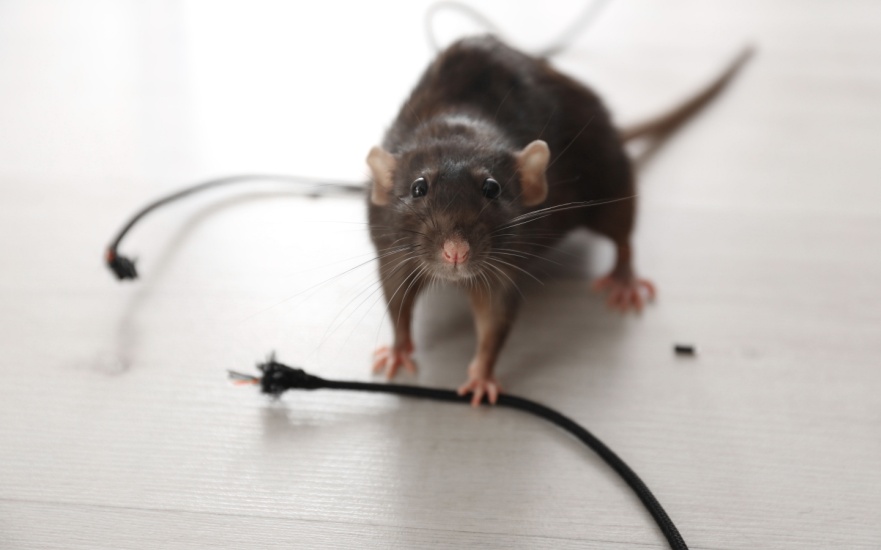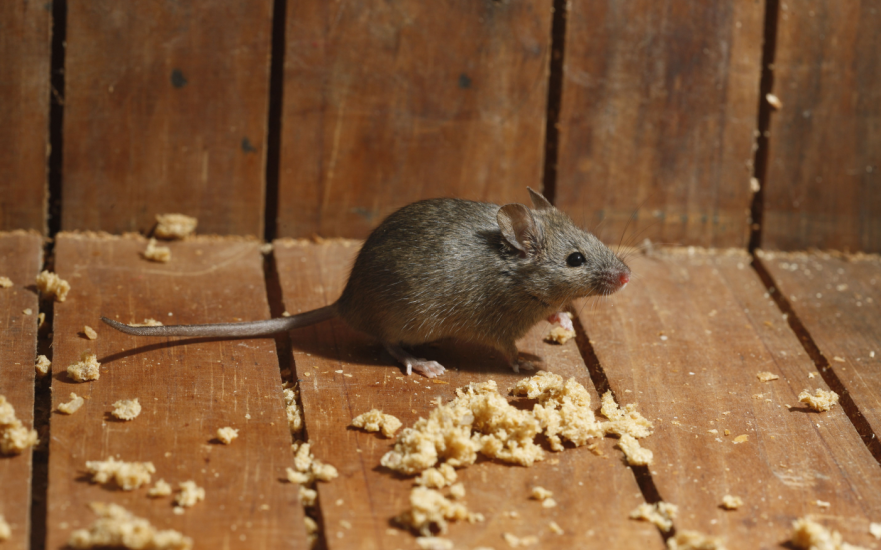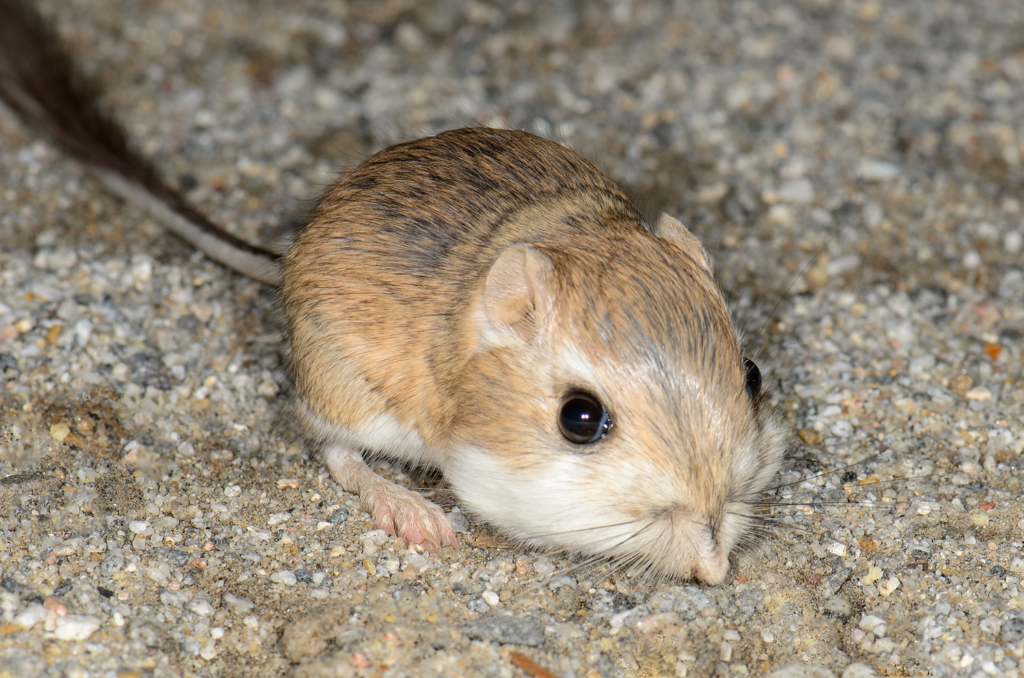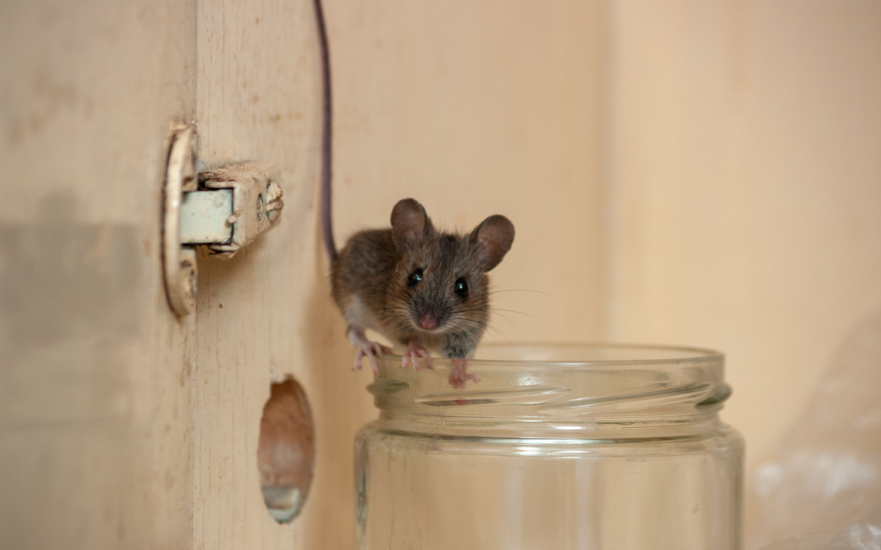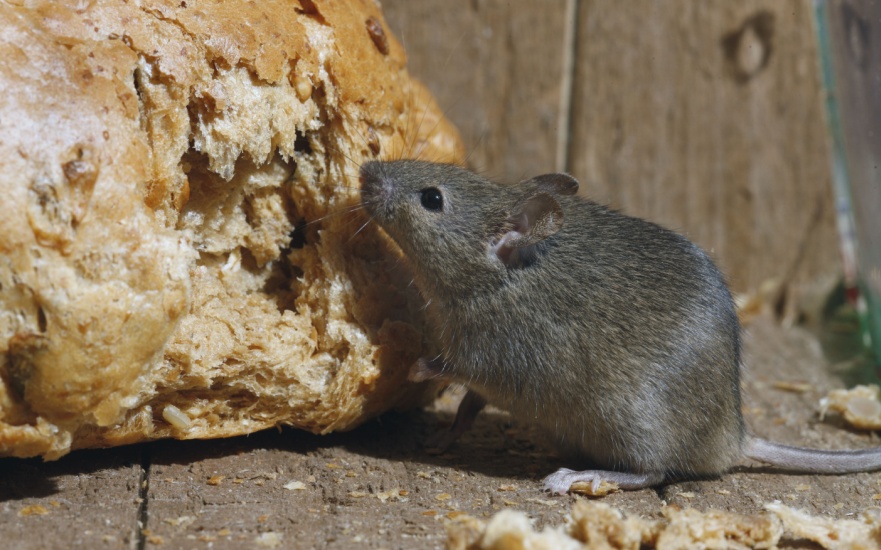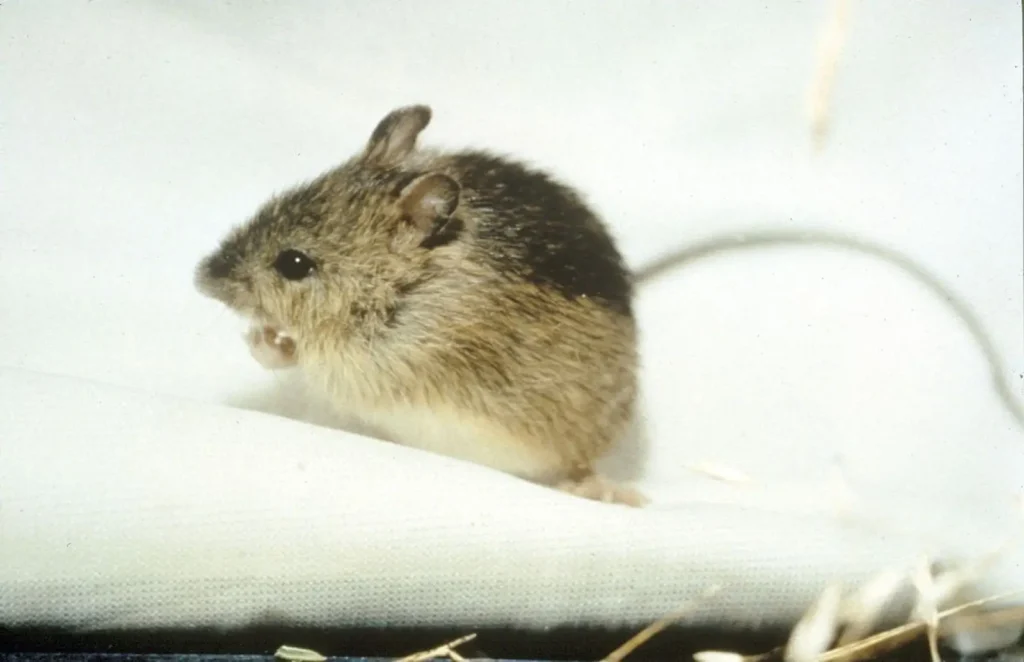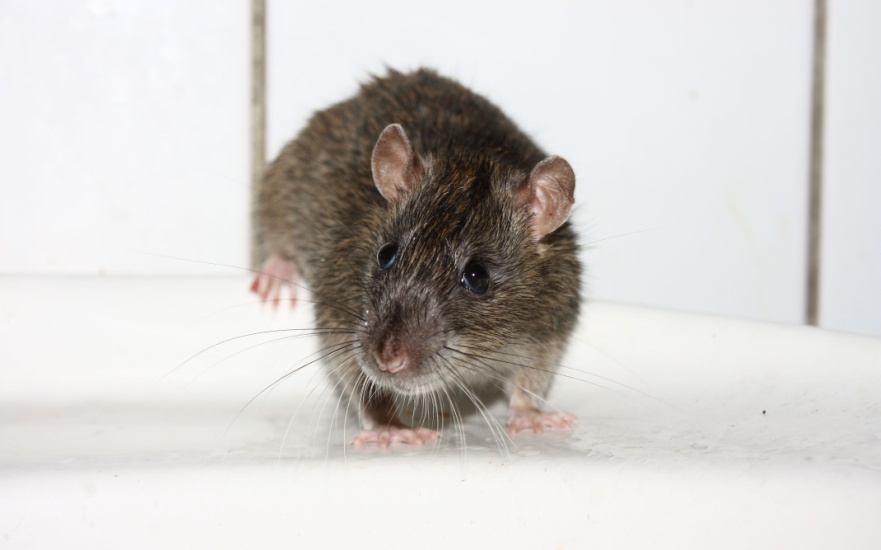Mouse infestations can be a big problem. They can damage homes and spread diseases. It’s important for homeowners to know how to handle mouse infestations.
Dealing with rodents can be tough. At Vinx Pest Control, we teach you how to get rid of mice well. DIY methods can help, but knowing their limits is key.
To control rodents, you need a solid plan. This includes sealing holes, keeping things clean, and using traps or repellents. But, these methods might not work for everyone and can be risky if not done right.
Key Takeaways
- Understanding the signs of mouse infestation is key to controlling them.
- Sealing holes is a big step in stopping rodents from getting in.
- Keeping your home clean can help keep mice away.
- There are many DIY options, like traps and repellents.
- For serious or ongoing problems, you might need a pro.
Understanding the Mouse Problem
First, you need to spot mouse signs to keep your home mouse-free. Mice can damage your home and make you sick. So, knowing the problem is key.
Common Signs of Mouse Infestation
Mouse problems show up in many ways. Spotting these signs early helps get rid of mice.
Droppings and Urine Trails
Mouse droppings are small, dark, and look like pellets. They’re near food or walls. Urine trails smell bad and are easy to find.
Gnaw Marks and Damaged Materials
Mice chew on wood, plastic, and fabric. They make holes for hiding or to get food. Gnaw marks show mice are around.
Unusual Pet Behavior
Pets might notice mice before we do. If your pet stares at something or seems upset, it could mean mice are there.

Health Risks Associated with Mice
Mice are not just pests; they’re also health risks. Knowing this helps us act fast.
Disease Transmission
Mice spread diseases through their waste and saliva. These include Hantavirus, Leptospirosis, and LCMV. For more info, check out DIY vs Professional Rat and Mice.
Allergies and Respiratory Issues
Mouse waste can make allergies and asthma worse. Mice can really hurt your indoor air and health.
Understanding mouse problems helps us fight them off. We can keep our homes safe and healthy.
Types of Mice Commonly Found in American Homes
Understanding the types of mice in American homes is key. Each type needs a special way to get rid of them. We’ll look at the most common mice in U.S. homes.
House Mouse (Mus musculus)
The House Mouse is the most common in homes. They can live in many places. House mice can fit through tiny holes, making them hard to keep out.
- They are usually gray or brown.
- House mice eat almost anything.
- They breed a lot, with females having many litters a year.
Deer Mouse (Peromyscus maniculatus)
The Deer Mouse is common, too. They carry hantavirus, a serious disease. Deer mice live in rural areas but can also get into suburban homes.
- Deer mice have a white belly and brown or gray back.
- They mostly live outside but come inside for food or shelter.
- For more info on Deer Mice and others, check out Field Mouse vs House Mouse.
Field Mouse (Apodemus sylvaticus)
Field mice live in both rural and city areas. They mostly stay outside but can get into homes. This happens more in the fall or when their outdoor homes are messed with.
- Field mice are brown or gray with a white belly.
- They mostly eat seeds, fruits, and plants.
- Field mice can damage homes and food when they get inside.
Why Mice Enter Your Home
Mice come into homes for many reasons. This includes changes in the seasons and weak spots in buildings. Knowing these reasons is key to keeping mice away and stopping them from coming back.
Seasonal Factors
Seasonal changes are a big reason for mouse problems. When it gets cold, mice look for warm places to live and have babies. This means more mice in homes during the colder months.
Food and water also draw mice. When there’s little food outside, homes become a good place for them to find what they need.
Structural Vulnerabilities
Weak spots in buildings let mice in. They can fit through tiny holes. So, even small cracks can be a way in. It’s important to check your home’s outside for these spots and seal them up.
Cluttered homes also attract mice. Keeping your home tidy and organized helps keep mice away. This makes it less likely for them to make your home their own.
To stop mice from coming in, you need to deal with both seasonal and structural issues. By understanding why mice come in, you can take steps to keep them out. This helps keep your home free from rodents.

Effective DIY Mouse Trapping Methods
Using the right mouse traps can really help get rid of mice. It’s important to pick a method that works well and is safe.
Traditional Snap Traps
Traditional snap traps are a favorite for catching mice. They are cheap and work well. When a mouse touches the bait, the trap snaps shut fast.
- Easy to set up and use
- High success rate if placed correctly
- Available at most hardware stores
Live Capture Traps
Live capture traps are a kind way to catch mice. They keep mice alive until you can release them far away.
- Humane and non-toxic
- Reusable
- Safe for households with pets or children
Electronic Traps
Electronic traps are a new way to deal with mice. They use bait to attract mice and then shock them.
- High-tech and efficient
- Easy to clean
- Can be more effective than traditional methods
Proper Trap Placement
Where you put the trap is very important. Knowing how mice move helps place traps better.
High-Activity Areas
Look for places where mice are often seen, like near food or along paths they take.
Along Walls and Corners
Mice like to hide in corners and travel along walls. Putting traps there can help catch them.
For more DIY tips, check out our article on 5 DIY tips to get rid of a rodent.
Natural Mouse Repellents and Deterrents
Want a mouse-free home? Try natural repellents that are good for the planet. They keep mice away and make your home healthier.
Essential Oils
Essential oils are great for keeping mice away. Some smells mice don’t like can keep them out.
Peppermint Oil
Peppermint oil is a top choice for mice repellent. Its smell is too much for mice. Soak cotton balls in it and put them where mice go.
Clove and Eucalyptus Oils
Clove and eucalyptus oils work too. Their strong smells keep mice away. Use them together to keep mice from getting used to one smell.
Ultrasonic Devices
Ultrasonic devices also keep mice away. They make sounds mice don’t like. They’re safe and easy to use.
Natural Predator Scents
Mice are scared of predators. Using scents like coyote or fox can keep them away. Put these scents around your home.
Using these natural ways, you can keep mice out without harsh chemicals.
Comprehensive Mice Prevention Strategies
To keep mice away, it’s important to have a good plan. This plan should cover many parts of taking care of your home. By knowing how to stop mice, you can protect your home better.
Food Storage and Kitchen Cleanliness
Keeping food safe and your kitchen clean is key. Mice love food, so keep it in sealed containers. Clean up crumbs and spills often to lower the chance of mice coming in.
- Store food in mouse-proof containers.
- Regularly clean kitchen counters and floors.
- Avoid leaving dirty dishes overnight.
Regular Home Maintenance
Keeping your home in good shape helps stop mice. Look for and fix any damage or weak spots that mice could use to get in.
- Inspect your home’s foundation and walls for cracks.
- Seal any gaps around pipes and vents.
- Ensure that doors and windows are properly sealed.
Landscaping Considerations
How you landscape your yard is also important. By managing plants and outdoor storage, you can make it less likely for mice to live near your home.
Vegetation Management
Keep plants trimmed and away from your home. This stops mice from hiding or getting into your home.
- Trim trees and bushes regularly.
- Keep grass short.
- Remove any debris or clutter from around the home.
Outdoor Storage Practices
Storing things outside right is also key. Use mouse-proof containers or places to keep items. This keeps mice away from your home.
- Store firewood and other materials in sealed containers.
- Keep outdoor storage areas clean and organized.
- Avoid storing items near the home’s exterior walls.

Sealing Entry Points: A Critical Step in Mice Control
To keep your home mouse-free, find and seal all entry points. Mice can fit through tiny gaps. They sneak into homes through hidden spots.
Stopping mice isn’t just about getting rid of them. It’s also about keeping new ones out.
Common Mouse Entry Points
Mice get into homes in many ways, like:
- Cracks around windows and doors
- Gaps around pipes and electrical outlets
- Ventilation shafts and chimneys
- Hidden passages behind appliances and cabinets
Look closely at your home to find these spots. Check inside and outside, focusing on where materials meet, like the foundation and walls.
Best Materials for Sealing Gaps
Choosing the right materials is key for sealing gaps. Here are some good ones:
- Steel wool: Good for bigger gaps
- Caulk: Best for windows and doors
- Spray foam: Great for pipes and vents
- Hardware cloth: A metal mesh for big openings
For more on mice, check out our article on how to deal with mice infestation.
Professional-Grade Exclusion Techniques
DIY methods work for small jobs. But for full mouse-proofing, you need pros. They use special materials and methods to seal all gaps.
Knowing how to seal entry points helps a lot. It makes your home safer and healthier.
Safe Cleanup After Mice Removal
After removing mice, it’s key to clean up safely. Mice can spread diseases and make surfaces dirty. So, cleaning well is very important.
Handling Dead Mice
When dealing with dead mice, be careful to avoid diseases. Wear gloves and put the mouse in a sealed bag or container.
- Wear disposable gloves to prevent direct contact.
- Use a disinfectant or a mixture of bleach and water to clean any surfaces that came into contact with the mouse.
- Seal the dead mouse in a bag before disposing of it in the trash.
Disinfecting Contaminated Areas
It’s very important to disinfect areas mice touched. Use a good cleaning with disinfectants.
- Prepare a disinfectant solution or use a commercial disinfectant product.
- Apply the disinfectant to all contaminated surfaces, including countertops, floors, and nesting areas.
- Allow the disinfectant to sit for the recommended time before wiping down the surfaces.
Disposing of Mouse-Contaminated Materials
Some things, like insulation or very dirty items, must be thrown away. This stops them from getting dirty again.
- Identify materials that are heavily contaminated and cannot be cleaned.
- Seal these materials in bags to prevent further contamination.
- Dispose of the sealed bags in accordance with local regulations for hazardous waste.
By doing these steps, we can clean up safely after mice are gone. This helps avoid getting sick and keeps mice away.
When DIY Methods Aren’t Enough: Signs You Need Professional Help
Sometimes, mice keep coming back, even when we try hard to stop them. DIY tricks might help a bit, but they don’t solve the main problem. If you see mice often or a lot, it’s time to call for expert help.
Persistent Infestations
If DIY tricks don’t work and you see mouse signs, like droppings or gnaw marks, it’s a big problem. These signs mean mice are causing a lot of damage and could be harmful to your family. You need a pro to get rid of them for good.
Large-Scale Infestations
A big mouse problem needs quick action. Seeing lots of mice means they’ve been there for a while. Experts can figure out how to get rid of them and stop more from coming.
Structural Damage Concerns
Mice can damage your home by chewing on important things. If you think mice have hurt your home, get help right away. Mouse experts can find out how bad it is and help fix it.
In short, if mice won’t go away or you’re worried about your home, get professional help. At Vinx Pest Control, we’re ready to help you get rid of mice for good.
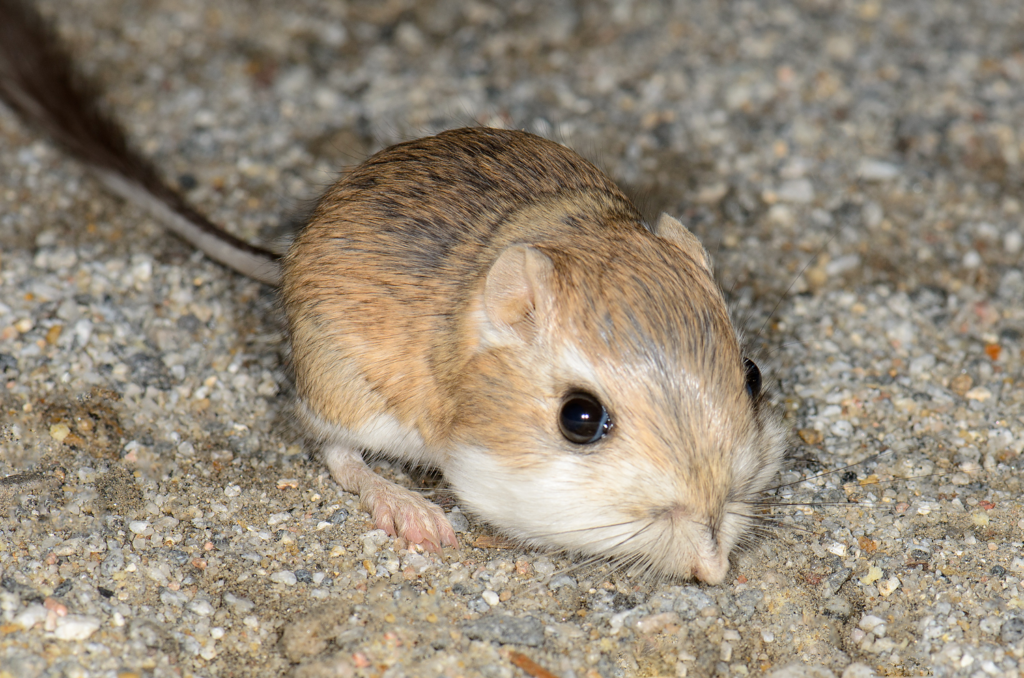
How Vinx Pest Control Handles Stubborn Mice Infestations
Vinx Pest Control is great at getting rid of mice. We find out why they’re there and fix it. This makes your place mouse-free.
Our Comprehensive Approach
We don’t just treat the symptoms. We solve the whole problem. We check your place for where mice get in, where they live, and where they eat.
This helps us make a plan just for you. It gets rid of the mice now and keeps them away later.
Our plan includes:
- Detailed property inspection
- Identification of mouse entry points and nesting sites
- Customized treatment plans
- Follow-up visits to ensure effectiveness
Advanced Techniques and Equipment
We use the newest pest control tools. Our team has the best equipment to find and get rid of mice. This keeps your family safe.
Some of our tools are:
- High-sensitivity detection devices
- Environmentally friendly traps and repellents
- Sealing materials for exclusion
Guaranteed Results
We guarantee our work at Vinx Pest Control. We promise to remove rodents for good. We want you to be happy with our service.
Our guarantee includes:
- Effective and lasting rodent removal
- Personalized service to meet your specific needs
- Ongoing support to prevent future infestations
Conclusion
Dealing with mice can be tough. But, knowing how to handle it can make a big difference. We’ve looked at many ways to keep mice away.
First, try DIY traps and natural repellents. But, sometimes you need a pro. At Vinx Pest Control, we tackle tough mouse problems. We use the latest tools to make sure they’re gone for good.
To keep mice out, seal holes and keep your home clean. Use pest control too. Our team is here to help you get rid of mice for good. With the right steps and help, you can live in a mouse-free home.
FAQ
Q: What are the most common signs of a mouse infestation?
A: Look for mouse droppings and gnaw marks on furniture or walls. You might smell a bad odor. Also, listen for scratching sounds at night.
Q: Are all types of mice the same?
A: No, there are different mice like House Mouse, Deer Mouse, and Field Mouse. Each has its own habits and ways to infest homes.
Q: Why do mice enter homes during certain times of the year?
A: Mice seek shelter in homes when it’s cold or outdoors is harsh. Homes with weak spots attract them too.
Q: What are the most effective DIY methods for trapping mice?
A: Use snap traps, live capture traps, or electronic traps. Place traps along walls or where mice are most active.
Q: Are there natural ways to repel mice?
A: Yes, essential oils, ultrasonic devices, and natural scents can keep mice away. These are good alternatives to chemicals.
Q: How can I prevent mice from entering my home?
A: Keep food stored well, maintain your home, and consider your landscaping. Seal all entry points to keep mice out.
Q: What are the best materials for sealing gaps and entry points?
A: Use steel wool, caulk, and expanding foam to seal gaps. These materials block mice from entering homes.
Q: How should I clean up after removing mice?
A: Safely handle dead mice, disinfect areas, and throw away anything mice touched. This keeps your home clean.
Q: When should I seek professional help for a mouse infestation?
A: Get help if mice keep coming back or if they damage your home. Companies like Vinx Pest Control can help.
Q: What makes Vinx Pest Control effective in handling mouse infestations?
A: Vinx Pest Control uses advanced methods and equipment. They guarantee their work, giving homeowners peace of mind.
Q: Can mice pose health risks to humans?
A: Yes, mice carry diseases and can cause allergies. Their waste can spread germs. Quick removal is key to health.



